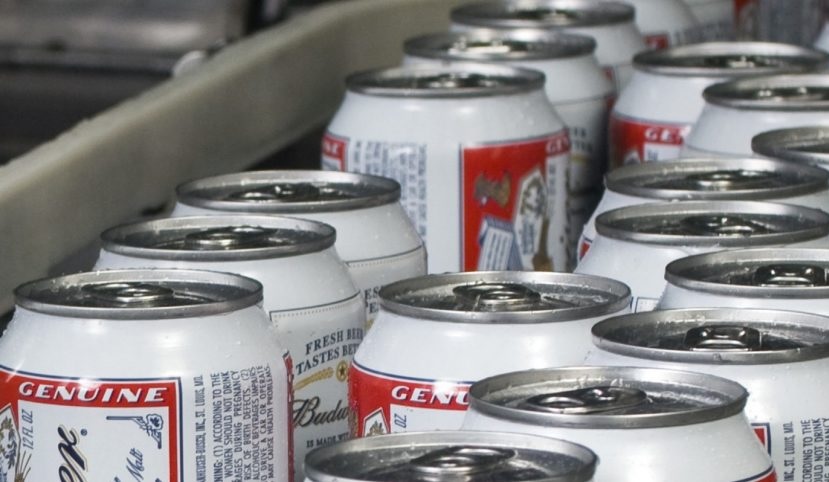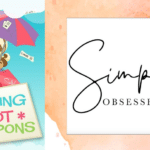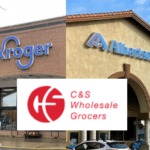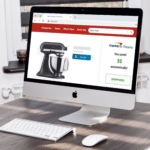
Instead of offering coupons and rebates that make you jump through hoops for savings, wouldn’t it be easier if stores would just sell you stuff at lower prices? That’s what a group of California convenience store owners say some of their competitors did – but they’re not happy about it. Instead, they’re suing the world’s largest beer company over what they’re calling an “illicit couponing scheme”.
The plaintiffs claim that a select group of “favored retailers” submitted coupons and rebates for reimbursement that were never used by consumers – with the full knowledge of beer maker Anheuser-Busch and the company that distributes Anheuser-Busch products in central California.
The four convenience store owners suffered a setback last week when a California appeals court denied their effort to certify the case as a class action on behalf of all “non-favored retailers”. But their case, first filed in October 2014, goes on.
The lawsuit accuses Anheuser-Busch and wholesale distributor Donaghy Sales of running a “scheme of secret rebates concealed in the form of bogus manufacturer consumer coupons”. State law requires beer distributors to sell to retailers at consistent, fixed prices. But the lawsuit says the defendants “violated and evaded those laws” by “engaging in a scheme of secret price discounting to selected retailers”.
The companies deny the allegations. The lawsuit claims they provided retailers with coupons and rebate offers that were meant to be offered to customers. Instead, the retailers are accused of using the coupons and rebates for themselves, to effectively discount the wholesale prices they paid. That, in turn, allowed them to pass along some or all of the savings to their customers, thereby undercutting their competitors’ prices.
It may sound like a good deal for beer shoppers – after all, they get discounts without ever having to redeem coupons or submit for rebates. But it’s not clear that the full discounts were being passed on to consumers, who might have saved more had they been able to redeem the coupons or get the rebates themselves. And it wasn’t such a good deal for beer shoppers who went to a store that wasn’t part of the alleged scheme – they were stuck paying full price, because most of the available coupons had already been redeemed by the store’s competitors.
The favored retailers, who were allegedly “hand-picked” by the defendants, were “allowed and encouraged to use the coupons inappropriately”, the lawsuit states. Some coupons “were in the form of money rebates for the purchase of Anheuser-Busch beer, others were in the form of coupons for money off the purchase of a different product purchased contemporaneously with Anheuser-Busch beer,” the lawsuit goes on. “Rather than providing these coupons to consumers, however… the favored retailers redeemed them themselves.”
And they didn’t necessarily even comply with the coupons’ conditions, the lawsuit alleges. “In instances in which the coupons were for the purchase of products in conjunction with Anheuser-Busch beer” – such as “Buy beer and get $1 off a bag of chips” – “not only were the coupons not provided to consumers, usually there was no purchase of the product referenced in the coupon.”
The plaintiffs say the favored retailers would give the coupons to the distributor for a credit, or send them in for reimbursement as though consumers had used them, and pocket the cash for themselves.
That’s similar to the scheme that former coupon executive Chris Balsiger was convicted of running. As the onetime CEO of coupon processing company International Outsourcing Services, Balsiger was convicted in 2016 of submitting millions of coupons for reimbursement that were never used by shoppers, and keeping the cash.
But he did so without the knowledge of the manufacturers whose coupons were being submitted. The retailers suing Anheuser-Busch say the company knew full well what retailers were doing with its coupons.
So what would the beer companies have to gain by allowing certain retailers to sell beer for less than their competitors? The lawsuit alleges there was a little something in it for the defendants. “Donaghy personnel sometimes demanded and/or accepted kickbacks in the form of liquor, merchandise and/or cash in exchange for the distribution of coupons,” the plaintiffs claim.
The appeals court agreed with the trial court that the convenience store owners did not adequately define members of its proposed class. So the lawsuit won’t be a class action on behalf of other affected retailers or consumers, but the plaintiffs are free to pursue the case on their own.
So as the dispute goes on, watch what you’re paying the next time you buy beer. It turns out that paying lower prices without having to redeem coupons or submit for rebates is a lot more complicated – and contested – than it sounds.
Image source: Anheuser-Busch










